"Pot, don't cook!": how rental bicycles flooded China
Categories: Asia
By Pictolic https://pictolic.com/article/pot-dont-cook-how-rental-bicycles-flooded-china.htmlLast year, a city bike rental program was launched in China on a grand scale: millions of brand-new bicycles from dozens of rental companies flooded the streets of Chinese megacities. But the explosive growth in supply far outstripped the existing demand — rental bicycles flooded cities whose infrastructure was not ready for such a flow of pedal transport.
The situation is as follows: the Chinese rent bicycles, and then, when the paid time expires (or the free first hour of rental), they throw them anywhere. Employees of public utilities collect abandoned two-wheeled vehicles and take them to special places, from where they should be picked up by rental companies. But most of them do not want to deal with the return of their property, as a result of which huge bicycle cemeteries have appeared all over the country, littered with thousands of iron corpses.
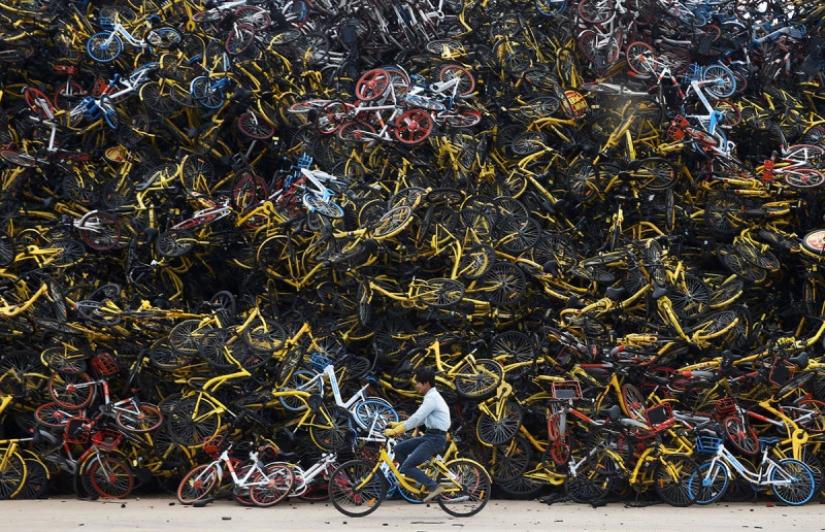 Source: The Atlantic
Source: The Atlantic
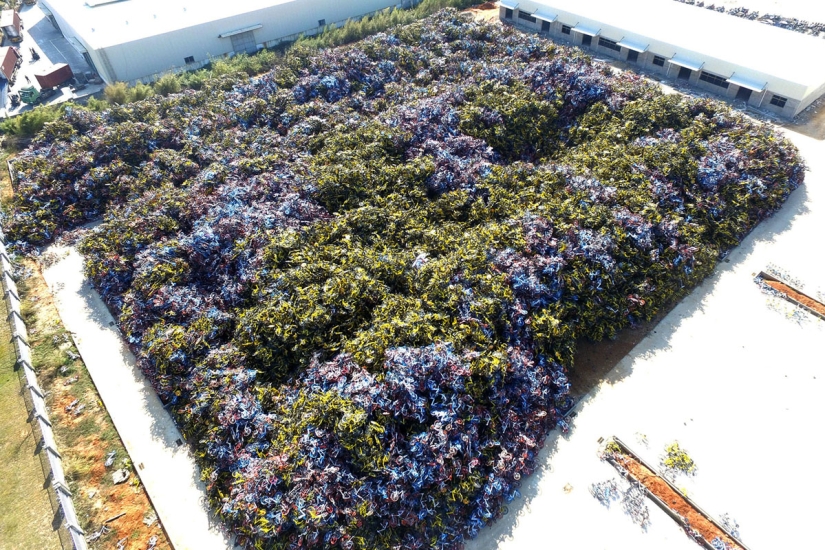
Chinese rental companies have produced huge quantities of bicycles with a huge surplus, which have now turned into dust-collecting piles like this bicycle cemetery on a vacant lot in Xiamen, Fujian Province. (TPG / Getty Images)
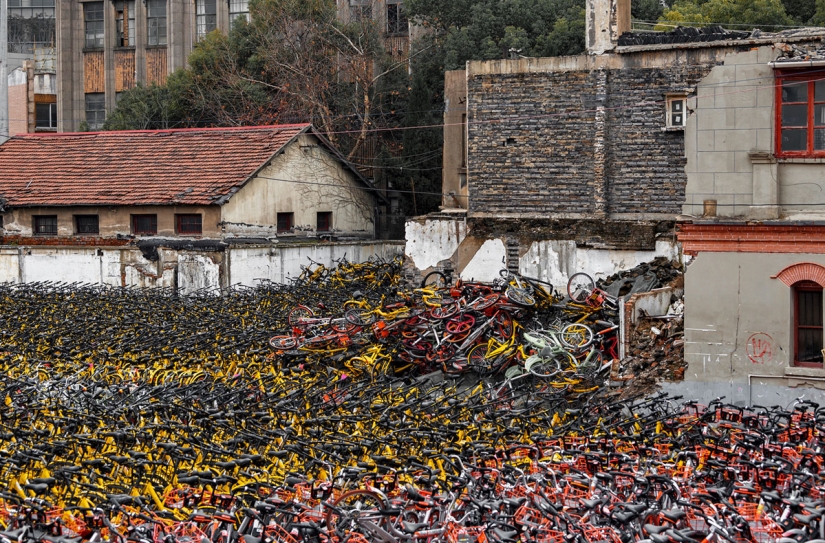
Chinese megacities were not ready for such a rapid seizure by bicycles. Cities drowned under piles of pedal transport: pictured is a bicycle dump in Shanghai on February 1, 2018. (Elizaveta Kirina / Shutterstock)
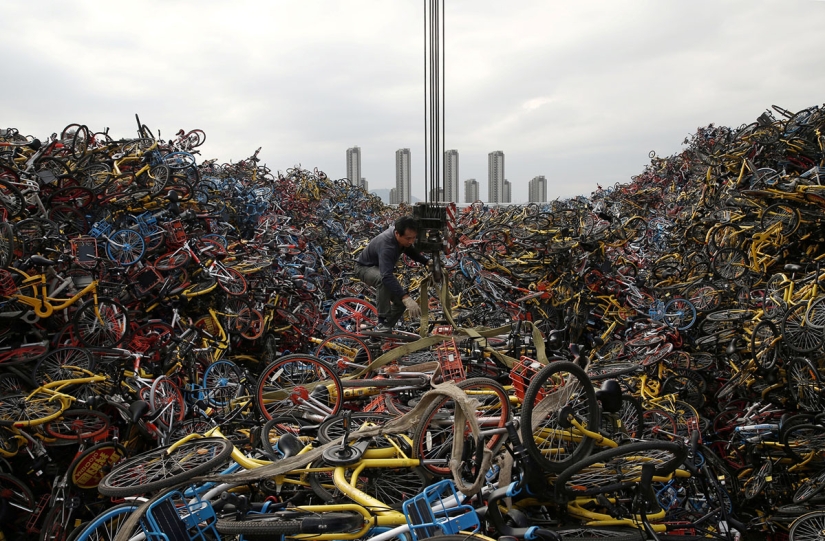
A worker untangles a rope among dumped bicycles in Xiamen, Fujian Province, December 13, 2017. (REUTERS / Stringer)
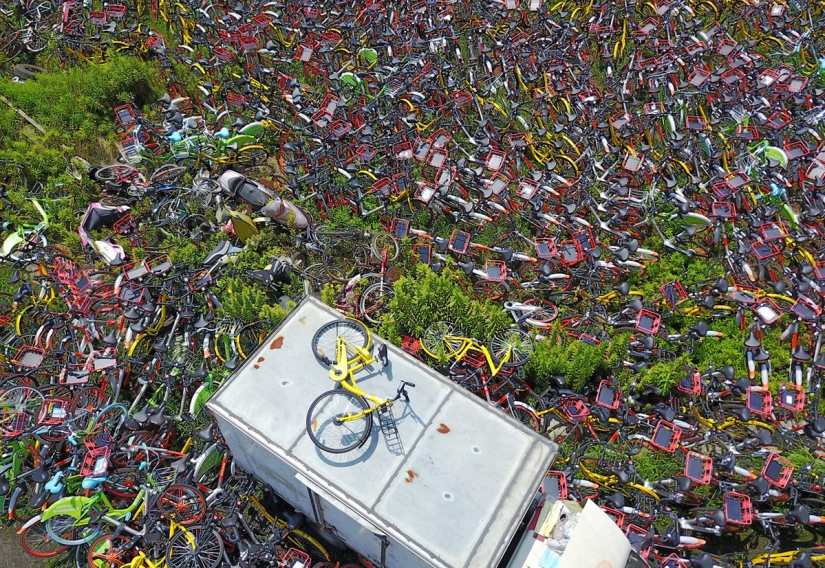
Thousands of improperly parked and temporarily seized bicycles at a sports ground in Hefei County, Anhui Province, August 17, 2017. (TPG / Getty Images)
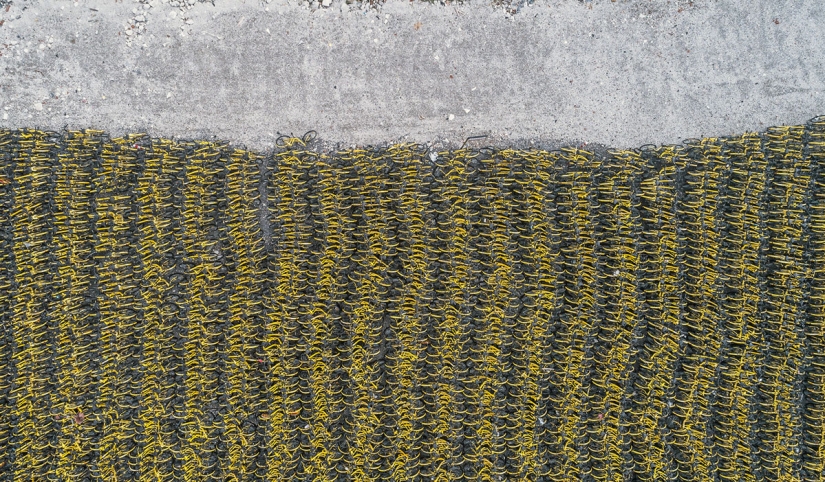
Drone view of the "bicycle field" in the suburbs of Shanghai. (Yibo Wang / Shutterstock)
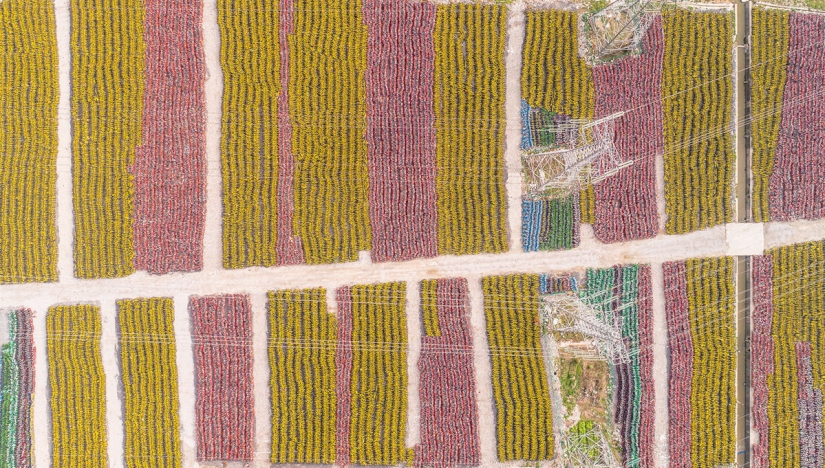
Perhaps you thought it was an aerial photograph of Dutch tulip fields. But this is also a Shanghai bicycle cemetery. (Yibo Wang / Shutterstock)
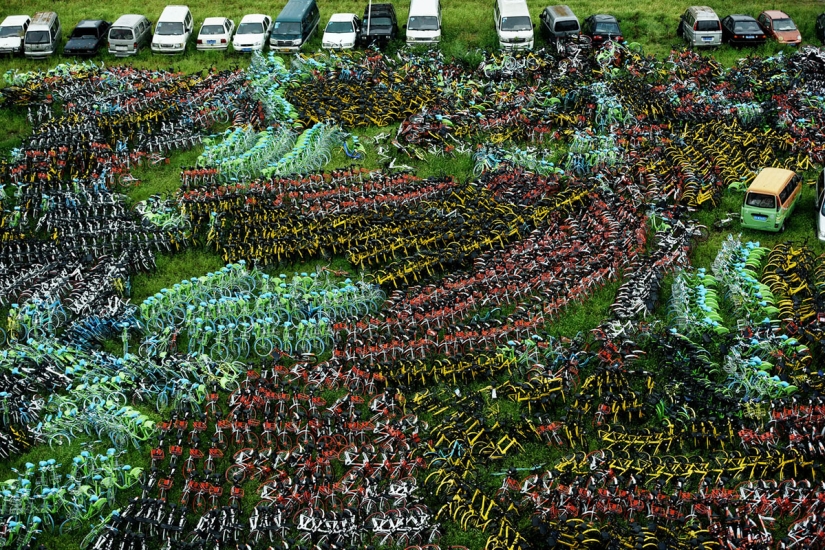
Bicycles of various bicycle rental services accumulated in huge numbers in Hangzhou, Zhejiang Province, on September 7, 2017. (REUTERS / Stringer)
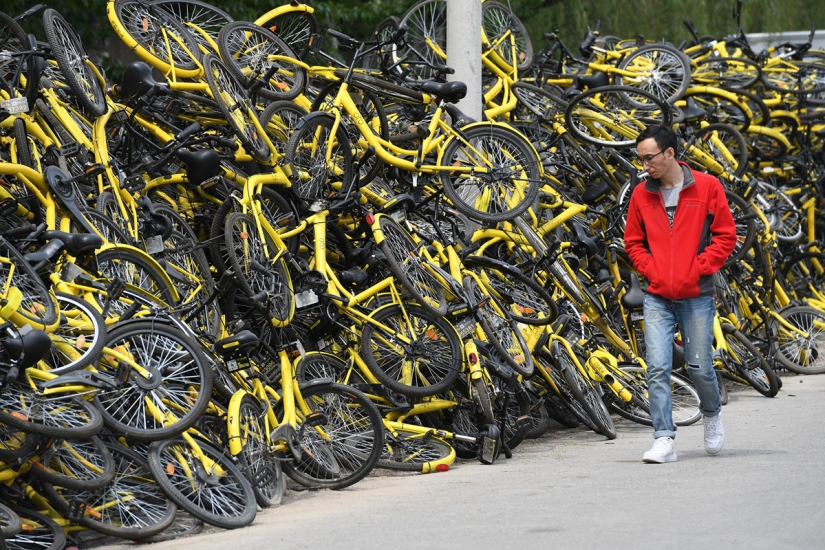
A pile of bicycles near a repair shop in Beijing, April 13, 2017. This happens in almost every city where the authorities have not established the rules of the game with the distributors. (China Daily via REUTERS)
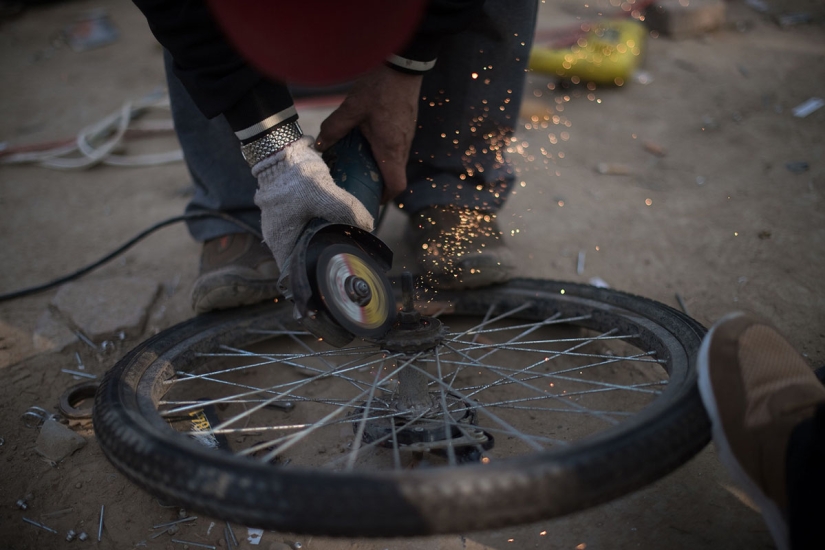
A worker repairs a rental bike at a Beijing service center, April 6, 2017. (Nicolas Asfouri / AFP / Getty)
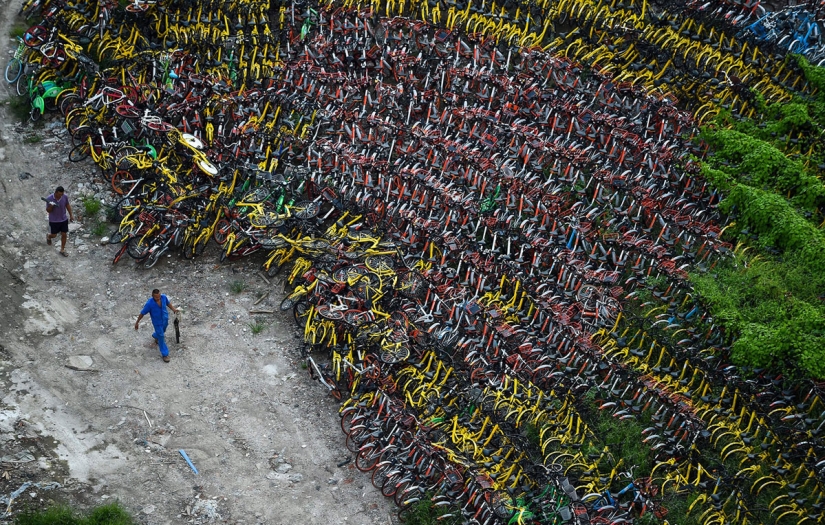
Huge piles of seized, abandoned and broken two-wheeled vehicles have become a familiar sight in many major cities of China. (CHANDAN KHANNA / AFP / Getty Images)
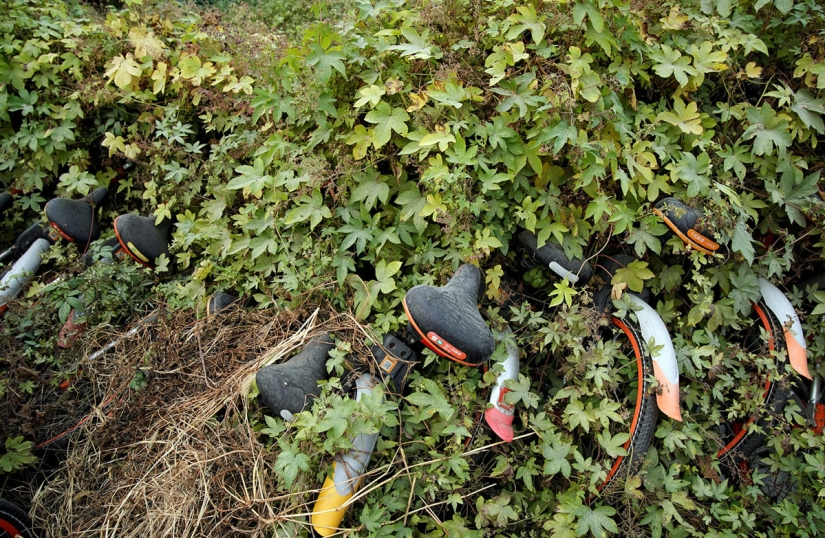
Abandoned bicycles of various companies in the thicket in Shanghai, November 3, 2017. (REUTERS / Aly Song)
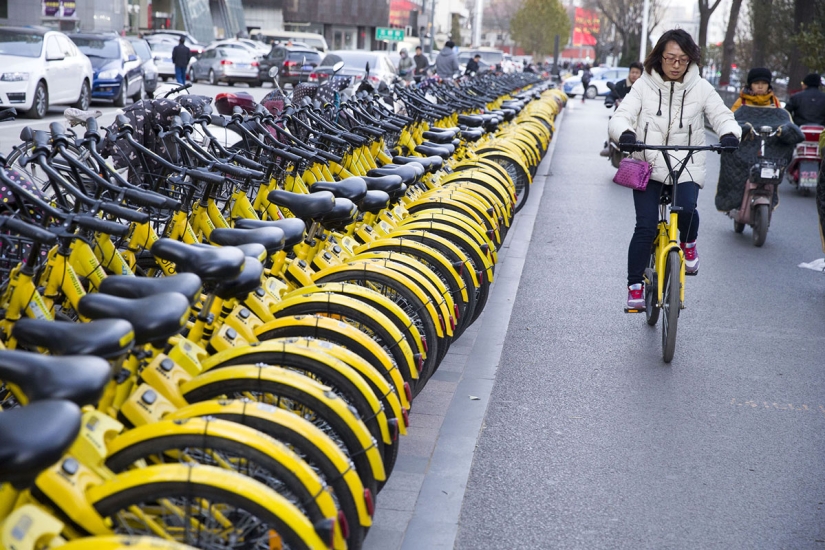
Bicycles of the Ofo rental company on the street in Beijing, November 23, 2017. On average, the price for an hour bike rental in China is about 1 yuan, that is, about 10 rubles or 16 cents. (TPG / Getty Images)
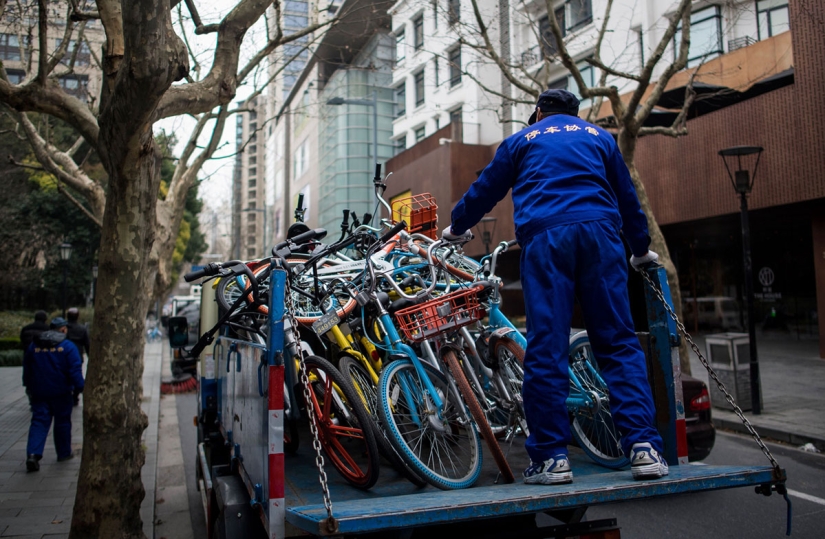
In this picture taken on February 20, 2017 in Shanghai, a parking service employee loads Mobike and Ofo bicycles into a truck. (Johannes Eisele / AFP / Getty)
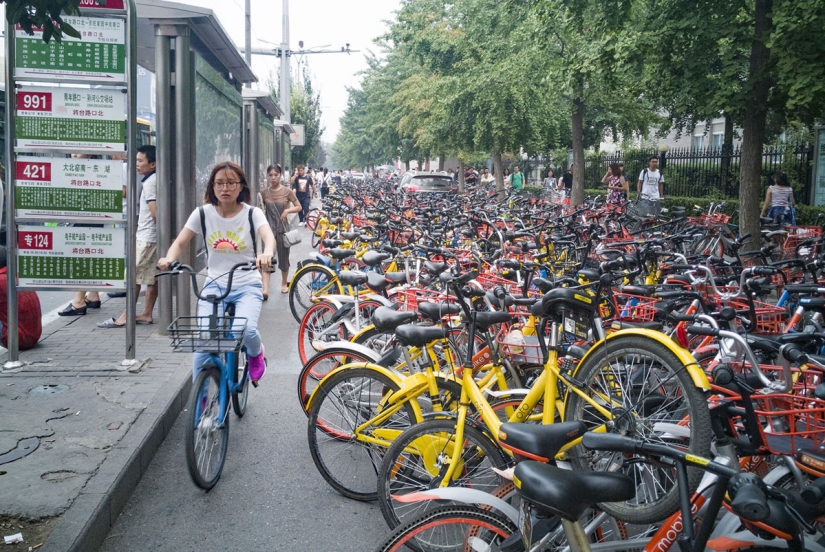
Rental bicycles blocked the road in Beijing's Chaoyang district, July 14, 2017. (Zhangjin_net / Shutterstock)
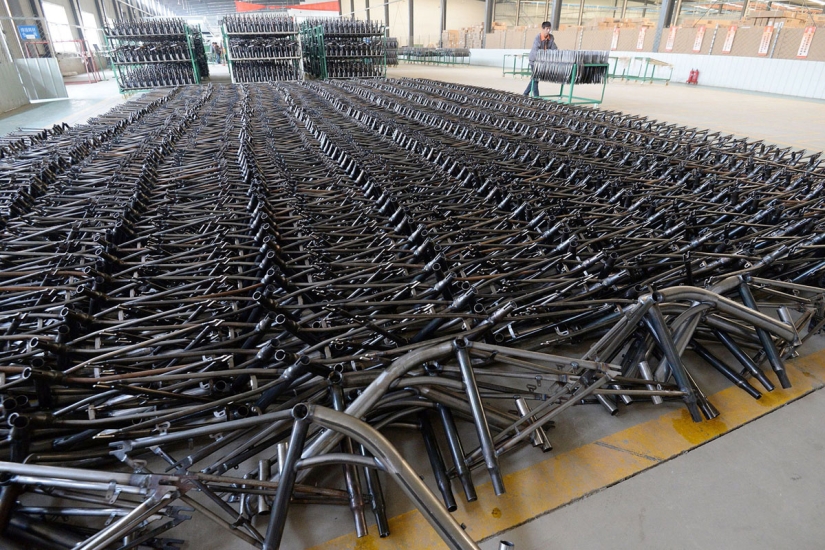
Frames for new Ofo bicycles at a factory in Handan, Hebei Province, April 13, 2017. (AFP / Getty)
Keywords: Bicycles | China | Cemetery | Rental | Landfill | Transport
Post News ArticleRecent articles

It's high time to admit that this whole hipster idea has gone too far. The concept has become so popular that even restaurants have ...

There is a perception that people only use 10% of their brain potential. But the heroes of our review, apparently, found a way to ...
Related articles

We are accustomed to the fact that on the packaging of tea, write "loose" and rarely think about what the word means. Meanwhile, ...

Human intervention in the affairs of nature is extremely rarely successful. Especially a lot of trouble was brought to the ...

The sea is still, you are a woman or a man, if you can hold in their hands an army of 70,000. Chinese Chin si could — she started ...

New Year's is a time to surprise and delight loved ones not only with gifts but also with a unique presentation of the holiday ...